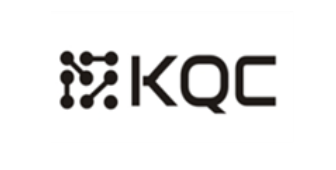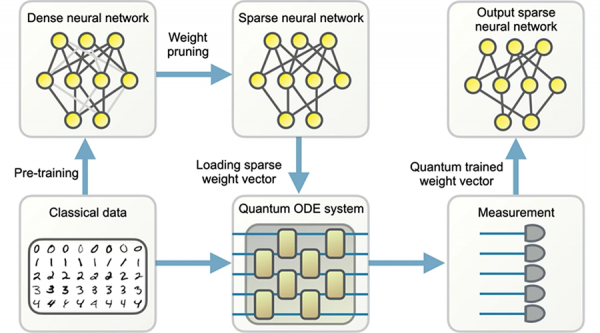Quantum News Briefs: January 31, 2024: The University of Tokyo, the National University of Seoul and the University of Chicago sign $100 million deal funded by IBM to create a quantum computing ecosystem; Korea Quantum Computing and IBM Collaborate to Bring IBM Watsonx and Quantum Computing to Korea; Aquark’s unique technique for generating cold atoms achieved by University of Birmingham; New Research Collaboration Unites Quantum Engineering and Artificial Intelligence; Wall Street Favorites: 3 Quantum Computing Stocks with Strong Buy Ratings in January 2024; and MORE!

Quantum News Briefs: January 31, 2024:
The University of Tokyo, the National University of Seoul and the University of Chicago sign $100 million deal funded by IBM to create a quantum computing ecosystem

In a landmark collaboration at Davos, Switzerland, the University of Tokyo, the National University of Seoul, and the University of Chicago have partnered with IBM in a $100 million project to develop a quantum computer ecosystem over the next decade. This ambitious project aims to build a supercomputer capable of processing 100,000 quantum bits, surpassing the binary processing capabilities of current systems. The partnership also involves training 40,000 students to meet the growing labor demand in quantum computing, a field poised to revolutionize various global challenges, including climate change, healthcare, and energy solutions. The initiative, which emerged from discussions at Camp David, represents a significant private-public effort in advancing artificial intelligence and quantum technologies, highlighting the importance of knowledge sharing, cybersecurity, and regulatory challenges in this rapidly evolving field.
Korea Quantum Computing and IBM Collaborate to Bring IBM Watsonx and Quantum Computing to Korea

IBM recently announced a collaboration with Korea Quantum Computing (KQC) to enhance Korea’s AI and quantum computing capabilities. Under this agreement, KQC will access IBM’s advanced AI software, infrastructure, and quantum computing services, including the IBM Quantum System Two and the AI-optimized infrastructure featuring advanced GPUs and IBM’s Artificial Intelligence Unit (AIU). This collaboration aims to empower KQC’s users with IBM’s full-stack AI solution, including Watsonx, for training and deploying AI models. Furthermore, the partnership extends to deploying an IBM Quantum System Two at KQC’s Busan facility by 2028, integrating quantum and AI technologies to tackle complex industry challenges. The initiative also includes collaborations with other Korean organizations, enhancing the country’s quantum computing ecosystem and advancing research in fields like healthcare, pharmaceuticals, and finance. This venture reflects a significant step in global technological advancement, highlighting the synergy between AI and quantum computing in driving innovation.
Aquark’s unique technique for generating cold atoms achieved by University of Birmingham
Scientists at the University of Birmingham, in collaboration with Aquark Technologies, have successfully tested a new technique called Supermolasses for generating cold atoms without needing an applied magnetic field. This innovation, part of the Innovate UK-funded Gravity Array project, promises to make cold matter platforms more portable and robust, enhancing their commercial usability. The Gravity Array project, a collaborative effort between Aquark Technologies and the University of Birmingham, aims to integrate the Supermolasses technique with quantum sensing of gravity, enabling the operation of multiple low-power sensor heads with a single laser and control system. This development could significantly reduce the cost and power requirements of quantum sensors, making them suitable for use in remote or harsh environments. The successful independent replication of the Supermolasses technique by the University of Birmingham team marks a crucial step towards practical applications in border control, infrastructure monitoring, and environmental observation. The project demonstrates a significant advancement in quantum technology, with potential widespread impacts on various sectors.
New Research Collaboration Unites Quantum Engineering and Artificial Intelligence

An interdisciplinary team from institutions including the University of Chicago, UC Berkeley, MIT, Brandeis University, and Freie Universität Berlin, led by Prof. Liang Jiang and postdoctoral scholar Junyu Liu of the Pritzker School of Molecular Engineering, has published a paper in Nature Communications demonstrating the integration of quantum computing with classical machine learning. This groundbreaking approach aims to make machine learning more sustainable and efficient. The team’s research focuses on designing quantum machine learning algorithms that can potentially address the high costs and environmental impact of training large machine learning models like GPT-3. By incorporating quantum computing in the data-pruning stage of machine learning, the team believes they can reduce the massive computational power and emissions generated by these processes. This innovative methodology suggests a future where quantum computing significantly contributes to solving large-scale machine learning challenges, potentially transforming fields such as AI and language processing. This paper marks a significant advancement towards converging quantum technology and machine learning, promising cost-effective and environmentally sustainable solutions.
Rice scientists pull off quantum coup

Scientists at Rice University have discovered a unique 3D crystalline metal alloy that uniquely combines quantum correlations and geometric structure to immobilize electrons. The alloy, composed of copper, vanadium, and sulfur, forms a 3D pyrochlore lattice of corner-sharing tetrahedra, creating a flat electronic band due to the frustrated movement of electrons. This research, published in Nature Physics, represents a first in the field, showcasing a material where quantum interactions and the crystal’s geometric structure play a vital role in electron behavior. The discovery was made using angle-resolved photoemission spectroscopy (ARPES) experiments led by Rice postdoctoral research associate Jianwei Huang and a team of interdisciplinary researchers. The alloy’s unique electronic properties, resulting from a combination of geometric and interaction-driven frustration, point to exciting possibilities for new states of matter and applications in quantum materials. This achievement is a significant step in understanding and utilizing the complex interplay of geometry and quantum mechanics in solid-state matter.
In Other News: IoT World Today article: “Quantum Defies Investment Slowdown”
Despite a global economic slowdown, investment in quantum technology remains resilient, according to the OpenOcean–IQM–Lakestar State of Quantum 2024 Report cited by a recent IoT World Today article. The report highlights a significant shift in funding sources, with government backing surpassing venture capital (VC) investment in quantum startups. While VC investment experienced a 50% drop globally, falling from $2.2 billion in 2022 to approximately $1.2 billion in 2023, this decline was mitigated by substantial government commitments. Over the next decade, over 30 governments have pledged more than $40 billion in public funding for quantum technologies. Notably, organizations in the financial services and pharmaceutical sectors are developing internal quantum expertise and increasingly looking toward quantum hybrid systems for short-term value. Despite a decrease in VC investments, particularly in the U.S. and APAC region, the steady progress in technology, such as larger qubit counts and initial error correction, indicates a continued journey towards commercial-scale quantum applications. The report, which gathered insights from various vendors and research institutions, suggests a cautious approach toward investment, balancing the excitement around AI with the steady development of quantum technologies.
In Other News: Euronews.next article: “Is quantum computing the next technology on the EU’s regulation agenda?”
![]()
Despite the potential security threats posed by quantum computing, there is currently little momentum in Brussels to regulate the technology, states a recent Euronews.next article. The European Commission’s recent Declaration on Quantum Technologies, endorsed by 11 member states but signed by only eight, marks a step towards prioritizing quantum technology in Europe. However, as the European Parliament elections approach and the Commission’s mandate nears its end, the prioritization of quantum technology remains uncertain. The Declaration, aiming to create a “Quantum Valley” in Europe, follows previous initiatives like the Quantum Technologies Flagship and the European High Performance Computing Joint Undertaking. Despite varying levels of commitment among EU member states, industry experts note the need for greater European coordination and specialization in quantum tech. The focus is on building hardware and quantum computing chips to compete with advancements in the US and China. Quantum computing’s impact on cybersecurity remains a chief concern, as advanced quantum computers could potentially break current encryption protocols. The time frame for such sophisticated quantum computers is estimated to be within 5 to 10 years, emphasizing the need for strategic planning and potential regulation in the future.
In Other News: InvestorPlace article: “Wall Street Favorites: 3 Quantum Computing Stocks with Strong Buy Ratings in January 2024”

A recent InvestorPlace article highlights that as quantum computing emerges as a key technological frontier, three stocks – Rigetti Computing (RGTI), D-Wave Quantum (QBTS), and Nvidia (NVDA) – stand out with “Strong Buy” ratings from Wall Street analysts, according to a recent industry report. Rigetti Computing, known for its vertical integration in designing and manufacturing multi-chip quantum processors, has shown significant revenue growth and is recognized for its potential in the quantum computing market. D-Wave Quantum, a pioneer in quantum annealing and creator of quantum annealers with over 5,000 qubits, offers its technology through a cloud platform, appealing to diverse customers. Despite a 32% decline in its stock over the past year, it presents a potential buying opportunity. Nvidia, a major player in AI and quantum computing, has seen its stock soar thanks to high demand for its AI solutions and its involvement in quantum computing with Tensor Core GPUs and the quantum platform. These three companies represent promising investment opportunities in the burgeoning field of quantum computing as of January 2024.




















